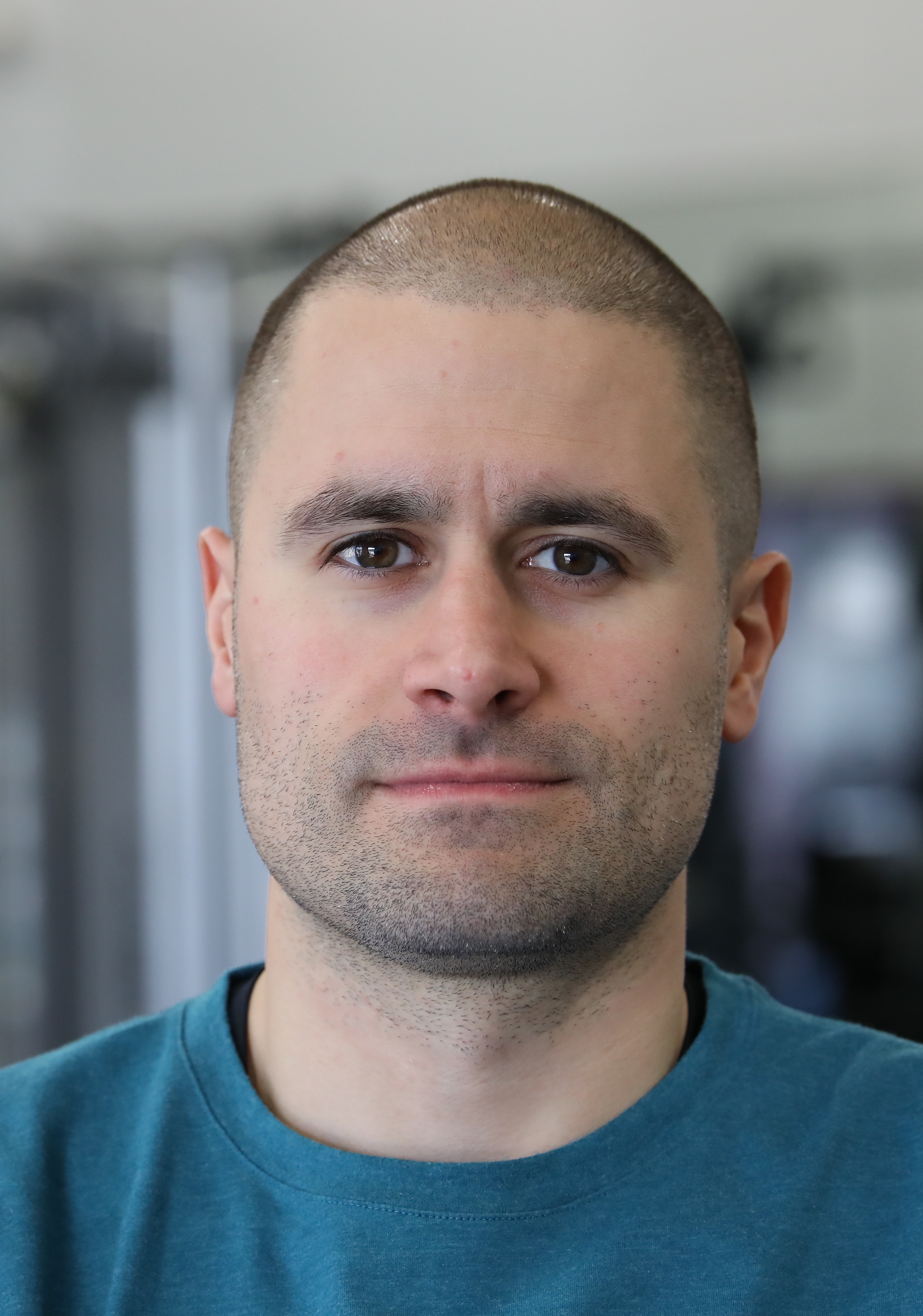4 TRAINING & RECOVERY SECRETS FROM THE FINAL FOUR: A LESSON IN PERFORMANCE UNDER PRESSURE

image: nbcsports.com
"When we made it to the Final Four we had final exams during the Sweet 16 and the Elite 8. We were studying on the bus, going to practice, doing media - the pressure was there on and off the court. I remember at one point getting physically sick and having to get away from everything, go to my room and just sleep." - Mark Madsen
Lesson to be learned
Mark Madsen has been to the Final Four, won two NBA Championships, is a colleague and someone whom I hold ultimate respect for as a coach and a friend. I asked him about the challenges he faced during the 1998 NCAA Tournament when he helped Stanford advance to the Final Four. The quote above from Mark helps to get a backstage snapshot of what the players are up against in March.
It is easy to get wrapped up in the brackets, office pools, upsets, and watching the collegiate athletes out there dunking, dancing, advancing and having fun!
Further insights into what these young student-athletes are faced with come tournament time have been mentioned recently by John Calipari - Head Coach of the Kentucky Wildcats. He talked about getting into hotel rooms at 2am after overtimeames, or having 3 games in 3 nights combined with noon tip-offs. In addition to the taxing schedule, this year's UK Wildcats are carrying the pressure of maintaining an undefeated season.
Beyond all of the hoopla, Mark (or "Mad Dog" as I prefer to call him) and the rest of the great players who have marched down the road to the Final Four teach a lesson every year during the tournament.
They show us how to perform at our best while surrounded by mayhem. Whether physical, vocational or both, we all have some version of performance goals that we strive for. Additionally, we all have lives filled with stress and competing priorities that we attempt to manage each day while striving to reach those performance goals. Here are the four training and recovery secrets that will help you optimize performance while under high levels of pressure and stress, courtesy of Mad Dog and the mayhem of March:
Secrets to winning under pressure & stress
1. Work hard but work less:hether you are a competitive athlete in the midst of a playoff run or you train and work out regularly to get stronger, you need to recognize the right times to implement a training de-load. Training volume needs to be adjusted during more stressful times in your life if you want your body to continue to perform at a high level through those times. I spoke with Brijesh Patel, Head Strength & Conditioning Coach at Quinnipiac University and founder/partner of SB Coaches Collegebout this topic because his athletes always seem to be prepared and successful come tourney time. He brings a wealth of knowledge, experience and passion to the profession and I am always impressed when I get the chance to hear what he has to share:
"March may be one of the most stressful months in the college basketball season. Everything is on the line with championships and seasons at stake. Physical and mental stress are high as fatigue has accumulated over the course of the 5 month season and this has to be taken into account when preparing for tournaments. We at Quinnipiac University start de-loading and tapering in early to mid-February with volume on and off the court. Weight room and practice sessions become shorter but intensity is still kept high to ensure that we are crisp and able to execute at game-like intensities. Intensity (as measured by loads) are relatively high as to keep strength levels up so that speed and power can be peaked near the end of the season. We also build in more recovery sessions using different soft tissue modalities such as sticks, rollers, and lacrosse balls. We also use guided imagery and relaxation to promote relaxation and a positive mental state heading into competitions." - Brijesh Patel
The problem with keeping the pedal to the metal through pressure-packed times is that you will run out of gas when you need it the most.
As Brijesh points out it doesn't mean that you have to stop training all together, just taper down the training durations and volume. This will allow you to avoid fizzling when you need high performance the most.
2. Get a good secretary: Early morning training, conditioning or practice sessions should only be done when absolutely necessary. The human body and structures of the human body have a sweet spot for when to best be pushed in physical activity. This is in the afternoon because the body has had a chance to warm-up through the day. Everything works better in the afternoon including your muscles (strength and flexibility), lungs, and neuromuscular system (reaction time/hand-eye coordination) - This article showing how much better your body functions in the p.m. should be sent to all of your friends who insist on a.m. training.
Your performance is enhanced and your injury risk is minimized by scheduling training for the afternoons.
A subtle schedule change towards afternoon training can also help you steal extra sleep in the morning. Don't worry, if early morning training is your thing then do your thing, but a team or a person who is in the midst of a high stress/pressure period will benefit greatly from chilling or better yet, sleeping in a bit more in the morning and training or competing in the afternoon.
3. Talk it out. Decompressing or debriefing can help athletes and training fanatics manage high pressure situations. Talking or writing down thoughts and feelings regarding the most recent training bout or competition helps to clear the mind and sets the table for high-level performance despite stressors and the pressure swirling around. Coach Patel mentioned the importance of this in his thoughts above when describing imagery and relaxation.
Art Horne MEd, ATC, CSCS and Zach Markowitz ATC, CSCS from the Northeastern University sports performance team were willing to contribute their thoughts on how they help their athletes manage the taxing, stressful nature of the postseason. Art is the Director of Sports Performance and Head Athletic Trainer/Strength & Conditioning Coach for men's basketball and coordinates the Boston Sports Medicine and Performance Group. I have always been impressed with his knowledge, approach and contributions within the field. Zach is Assistant Athletic Trainer and quickly working his way to becoming an all-star in the training and sports performance world. Check out what this dynamic performance enhancing duo had to say:
"Using RPE scales during practice and games has allowed us to quantify training loads on a daily, weekly, monthly, and seasonal basis. It provides insight that can allow a sports performance team to adjust training and recovery modalities to ensure optimal adaptation is achieved. In addition, the daily interaction and conversations that follow organically lead to discussions that allow us to drill further into each players life and discuss areas that may be affecting their perceived exertion such as sleep, nutrition, and injury. The data points provided to coaches and available to other performance team members are easy to interpret and allows them to see how certain drills and practice styles may affect the teams readiness and recovery." - Art Horne and Zach Markowitz
Art and zach remind all of us how powerful "daily interaction and conversation" is and why it is such an important part of excelling under fire.
A habit of post training or competition debriefings the ultimate low hanging fruit. It's free and requires nothing more than to put the cell phones down and briefly talk or write about your experiences.
4. Go to bed and stay there: Mad Dog Madsen made it clear in his quote at the top that sleep was his chosen weapon to fight against the pressure and stress of the NCAA Tournament. The evidence is mounting to suggest that Mad Dog was onto something! Sleep is when the body/mind recover, heal and prepare for the next day. This is not news but getting good sleep is hard to come by when you are on a college or pro sports team crossing time zones with loads of pressure on and off the court. Trust me, there is not a single Lakers player who would ever pass a chance to sneak a snooze if the opportunity comes up.
As you know, sleep is not just for college or pro athletes. Anyone who has training or performance goals and works/lives in today's wild and crazy lifestyle will suffer if they don't make sleep a priority. Here's an easy trick to make sure your devices aren't ruining your ability to rack up as much restful sleeps you can. When the pressure or stress mounts sleep in when possible and don't be afraid to grab naps when you can - our bodies are programmed for not one but two sleeps per day. In this article on NCAA student-athlete nap habits, Notre Dame player Zach Auguste was quoted saying:
"I think it helps. It kind of relaxes me and I'll be able to get up, take a deep breath and relax."
Big Finish
I need to clarify above when I said Mad Dog Madsen "helped" Stanford advance to the Final Four in 1998. His team was dead in the water with under a minute to go against Rhode Island in the Elite Eight. Suddenly after a slew of crazy plays, Stanford only trailed by one with under 30 seconds remaining. Out of nowhere Mad Dog scooped up a loose ball, dunked it and got fouled. Now Stanford was up one and Madsen stepped to the line with a chance to put his team up two and potentially launch them into the Final Four. Swish! The kid who finished taking finals the day before was cool and calm when crunch time came. He must have had some secret to come through in the clutch with the Final Four on the line!
IF YOU LIKED WHAT YOU READ HERE, BE SURE TO SHARE IT.
@tdathletesedge #FinalFour #MarchMadness #TDAE
Tim DiFrancesco, PT, DPT, ATC, CSCS is the Head Strength & Conditioning Coach for the Los Angeles Lakers and Founder of TD Athletes Edge, where he provides fitness, recovery and nutrition guidance to aspiring and professional athletes. For training advice, visit www.tdathletesedge.com and follow him on Twitter/Instagram through @tdathletesedge.
References:
Beth Cooper, B. (2013, July 18). Why Most Olympic Records are Broken in the Afternoon: Your Body's Best Time for Everything. Retrieved April 1, 2015.
Camfield, M. (2015, March 15). Coach Cal Talks NCAA Tournament Bracket. Retrieved April 1, 2015.
Collins, J. (n.d.). The Big Dance - Tales of Madness: Mark Madsen. Retrieved April 1, 2015.
Hine, C. (2015, March 25). NCAA Nap Time: You Snooze, You WIn. Retrieved April 1, 2015.
Justgetflux. (n.d.). Retrieved April 1, 2015.
Late Wakeup Call: Wildcats Slept in to Prep for Bearcats. (2015, March 20). Retrieved April 1, 2015.
Mah, C., Mah, K., Kezirian, E., & Dement, W. (2011). The Effects of Sleep Extension on the Athletic Performance of Collegiate Basketball Players. SLEEP, 34(07), 943-950. Retrieved April 1, 2015, from http://www.journalsleep.org/ViewAbstract.aspx?pid=28194
Shellenbarger, S. (2012, September 26). The Peak Time For Everything. Retrieved April 1, 2015.
Stanford Cardinal vs Rhode Island Rams 1998 [Motion picture]. (2011). YouTube.com.
ABOUT THE AUTHOR

Tim DiFrancesco, PT, DPT spent 6 seasons as the Head Strength & Conditioning Coach of the Los Angeles Lakers and is the founder of TD Athletes Edge. He is nationally renowned for his evidence-based and scientific approach to fitness, training, nutrition, and recovery for athletes and fitness enthusiasts.
